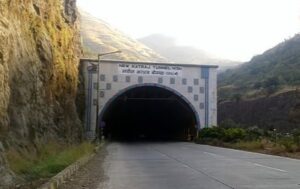Maharashtra State Electricity Distribution Company Begins Pilot Restructuring Of Customer Service Offices From October 1

Maharashtra State Electricity Distribution Company Begins Pilot Restructuring Of Customer Service Offices From October 1
Mumbai, October 1, 2025: Maharashtra State Electricity Distribution Company Limited (MSEDCL) has initiated a pilot restructuring of its sub-divisional and branch offices providing direct customer service. The pilot will begin on October 1, and after reviewing its performance for a month, the final framework will be implemented from November 1, 2025. Authorities have assured that electricity consumers will not face any inconvenience during this transition.
Currently, MSEDCL operates through 16 circles, 147 divisions, 652 sub-divisions, 3,274 branch offices, and 4,188 substations, with around 44,000 engineers and technical staff. These offices handle new power connections, monthly billing, maintenance, repair of faults, recovery of arrears, and reducing power losses. However, since the existing structure was created about 25 years ago, based on a much smaller consumer base, employees have been handling 10–12 types of tasks simultaneously, leading to workload stress and reduced efficiency.
The restructuring focuses on segregating work into two categories: maintenance & repair, and revenue & billing services. This change is aimed at improving efficiency, reducing staff workload, and providing faster and more reliable customer service.
As part of this initiative, 103 new offices are being created, including 2 divisional, 37 sub-divisional, and 30 branch offices, resulting in 876 new engineering and technical posts without reducing the existing workforce.
The model ensures that urban and rural offices will be reorganized based on customer volume and geography. Dedicated 10-member maintenance squads will handle substations and 33 kV lines, while revenue offices will deal with billing, new connections, and arrears collection. This focused approach is expected to improve service quality and operational efficiency.
Some regions with a smaller consumer base, like Nandurbar, Washim, Palghar, Ratnagiri, Sindhudurg, Gadchiroli, and Gondia, have been excluded from the restructuring. In flood-affected districts such as Beed, Nanded, Dharashiv, and Solapur, implementation will take place after restoration of damaged infrastructure.









